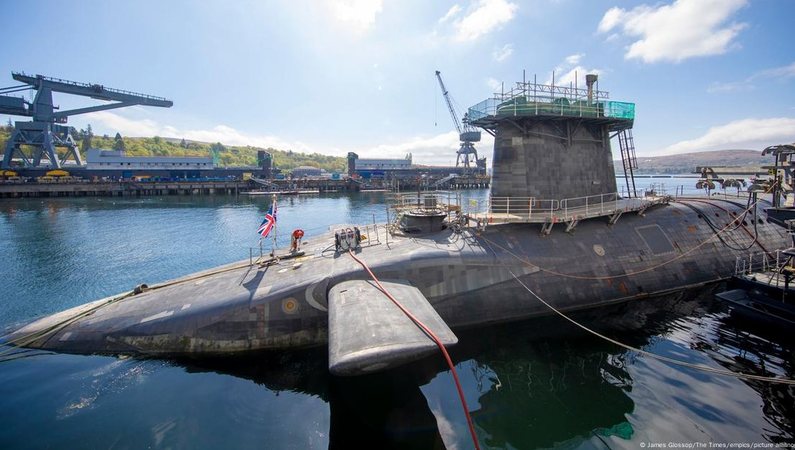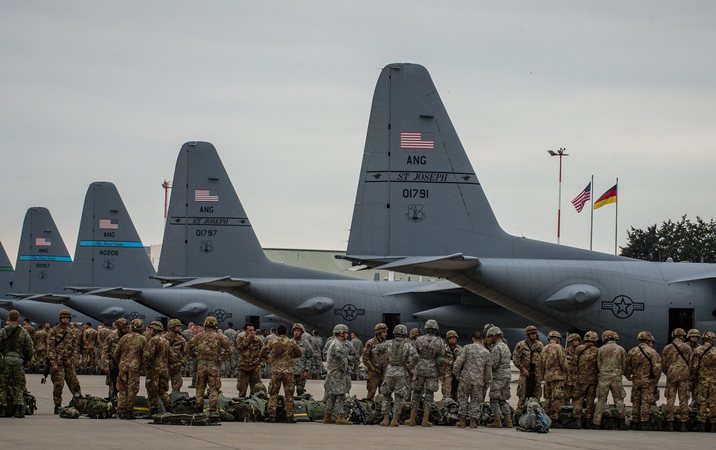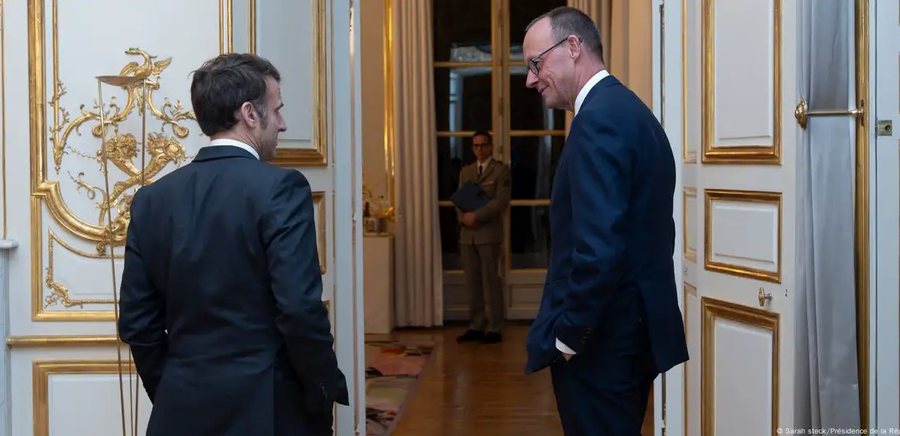
US nuclear weapons are still stationed in Germany. But Trump's distancing from Europe is weakening shared nuclear defense. Can France help?
French President Emmanuel Macron had been waiting for a positive response from Berlin for a long time. He had repeatedly offered to hold talks between Germany and France on nuclear defense, based on French atomic weapons. So far, these were just empty words.
But the situation is changing: CDU leader Friedrich Merz, the likely next German chancellor, is ready for dialogue. With Donald Trump in the White House, it could be that the US will no longer offer nuclear protection as it has done so far. Merz wants to talk to the two nuclear powers, France and Great Britain, about this issue. Paris has opened its doors.
American bombs in Germany
For decades, Germany has been under the US nuclear shield. It is said that up to 20 atomic bombs are located in Germany, but the code for their use is only in the hands of the US president. For its part, the Bundeswehr provides fighter jets, which will transport them if necessary. NATO calls this joint organization, "nuclear participation", in which other European countries also participate.
Security experts do not expect the US to give up its nuclear weapons in the near future. “I do not think it is a near-term scenario, because NATO and nuclear participation are of great strategic importance to the US for various reasons,” says Sascha Hach, an expert on European security and arms control at the Frankfurt Institute for Peace Studies, PRIF. “But it cannot be ruled out.” One of the US’s strategic advantages is the ability to respond to Russian aggression in Europe.
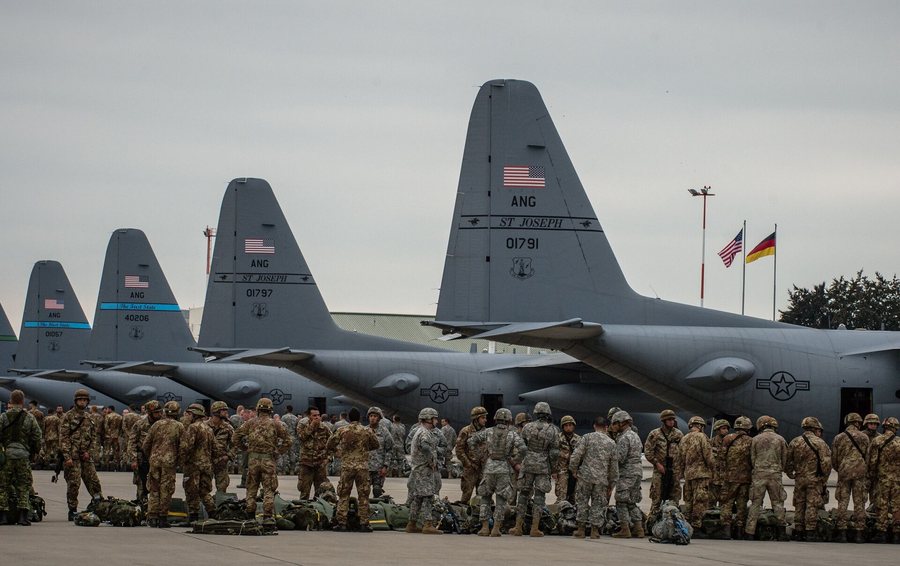
Germany has no right to have nuclear weapons
Even if the American bombs remain in Europe, the doubts that Donald Trump is sowing about the American promise to NATO are harmful and undermine the credibility of the nuclear threat. Germany, which has always relied on the US, now intends to reorient its security policy. The Bundeswehr will have to arm itself faster than planned. There is also debate about the nuclear shield: How valuable is it in these circumstances against Russia's vast nuclear arsenal of more than 5,500 nuclear warheads?
Germany itself is not allowed to have nuclear weapons. This was stipulated in the "Two Plus Four Agreement" of German reunification.
In Europe, only Great Britain and France have nuclear weapons, and within the EU, only France. Close cooperation seems the best way forward. But there are also limitations: British nuclear forces are closely linked to American ones and, in the event of a conflict, are made available to NATO. The situation is different in France, which attaches great importance to the independence of its nuclear armed forces. They are not dependent on NATO's joint command structures.
France possesses, according to some estimates, 290 nuclear warheads that can be commanded by nuclear submarines or Rafale fighter jets. The nuclear armed forces must protect the country's "vital interests", according to French doctrine. According to the French interpretation, they also strengthen the security of Europe by making it difficult for potential enemies to calculate.
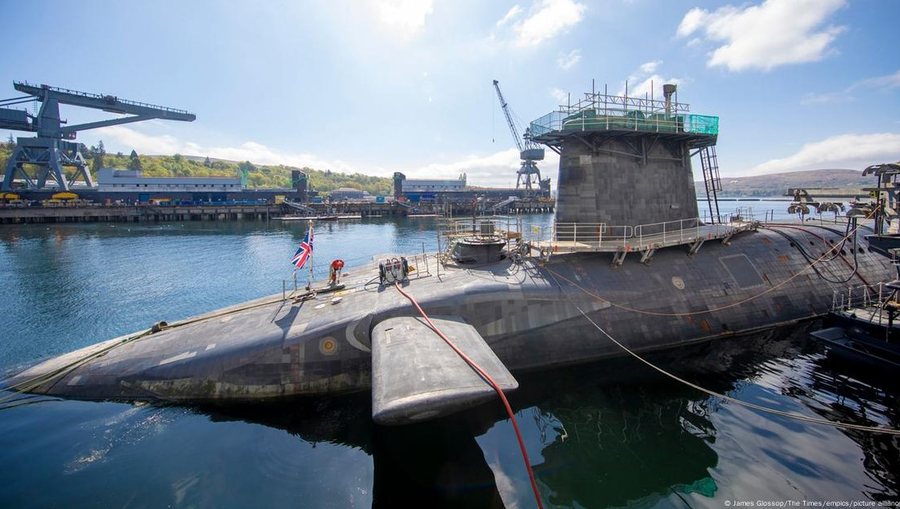
What would cooperation in this regard look like?
In Paris, it is said that an intensive dialogue must first be held. Information on the operational and strategic planning of nuclear weapons is extremely important. France has decades of experience in this area, which Germany does not have.
What is being considered are joint training of French and German fighter aircraft, says French security expert Camille Grand from the European Council on Foreign Relations. This could also include the accession of Rafale aircraft to Germany. There is no talk, as was rumored in the media, of stationing French nuclear fighter aircraft or other nuclear infrastructure in Germany.
Command remains with the French president.
France does not discuss the nuclear participation in its atomic weapons, as NATO does. Therefore, for expert Grand, "it is a mistake to think that French nuclear guarantees compensate for American nuclear guarantees," he told DW.
The French government has made it clear: It will not relinquish the decision to use nuclear weapons. "No matter what happens, the decision has been and will remain in the hands of the President of the Republic, the Commander-in-Chief of the Armed Forces," the French president said in a speech to the nation in March.
What can Europe do?
Not only the French nuclear forces, but also the British ones are very much oriented towards national defense. Great Britain is the only nuclear-armed country that has only a certain type of nuclear weapon. The country's nuclear threat is based entirely on naval defense, four nuclear submarines stationed on the west coast of Scotland.
This limits the possibility that these weapons will be put to use in the near future for a European nuclear defense. What could be considered is an intensified strategic dialogue, but also "a political declaration that the French and British nuclear arsenals could also be used to defend European territory if necessary," expert Sascha Hach tells DW. "But I don't think it's realistic that the armed forces in France and Great Britain will develop in such a way that they are also suitable for European defense."
The number of bombs doesn't matter.
Friedrich Merz in Germany also emphasizes that it is not a question of replacing US nuclear weapons, but rather of supplementing them. The US is seen as irreplaceable in NATO not only because of its nuclear arsenal, but also because of other special capabilities of these weapons. This includes direct contacts with Russian command centers and warning systems for ballistic missiles. These help to avoid unintended escalations - "If we in Europe are currently discussing how to do without the US, we are focusing on whether we have enough bombs," Hach emphasizes. This forgets that other security mechanisms could be lost without the US, such as direct contacts with the adversary. "Here I would say that it is in Europe's interest to set up similar structures and mechanisms over which we have control." /DW/ (A2 Televizion)

